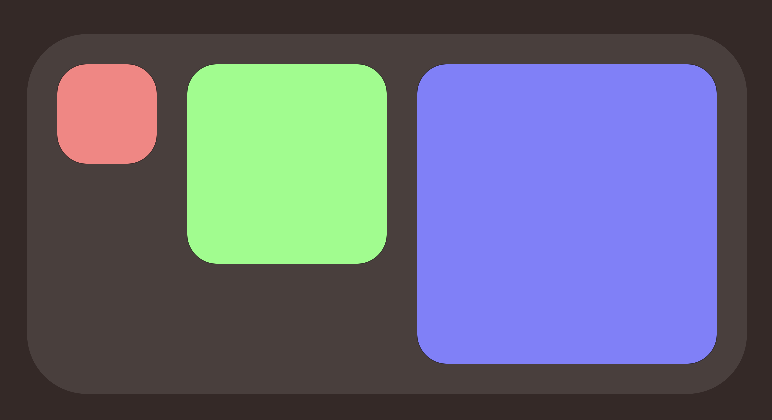AsyncGraphics
AsyncGraphics is a Swift package for working with images and video with async / await. The core type is simply just called Graphic, it's like an image and is backed by a MTLTexture.
Documentation
Documentation (DocC)
See the Graphic docs for all effects.
Articles
Content
Resources: Image, Video, Camera, Maps, Screen, Text, View
Shapes: Circle, Rectangle, Arc, Polygon, Star, Line
Solid: Color, Gradient, Noise, Metal
Particles: UV Particles, UV Color Particles
Effects
Direct: Blur, Zoom Blur, Angle Blur, Circle Blur, Rainbow Blur, Random Blur, Channel Mix, Chroma Key, Clamp, Color Convert, Hue, Saturation, [Monochrome](https://heestand-xyz.github.io/AsyncGraphics-Docs/documentation/asyncgraphics/graphic/monochrome()), Tint, Corner Pin, Edge, Kaleidoscope, Brightness, Contrast, Gamma, [Inverted](https://heestand-xyz.github.io/AsyncGraphics-Docs/documentation/asyncgraphics/graphic/inverted()), Opacity, Morph, Pixelate, Quantize, Sharpen, Slope, Threshold, Offset, Rotate, Scale, Metal
Dual: Blend, Cross, Displace, Lookup, Luma Blur, Luma Rainbow Blur, Luma Hue, Luma Saturation, Luma Brightness, Luma Contrast, Luma Gamma, Luma Translate, Luma Rotate, Luma Scale, Remap, Metal
Array: HStack, VStack, ZStack, Layers, Metal
Technical: Add, Average, Bits, Color Space, Crop, Inspect, Polar, Reduce, Resize, Coordinate Space, LUT
Install
.package(url: "https://github.com/heestand-xyz/AsyncGraphics", from: "2.0.0")Views
In AsyncGraphics there are a couple ways to present a graphic.
- AGView to declaratively view AGGraphs
- GraphicView to imperatively view Graphics
- AsyncGraphicView to imperatively view Graphics asynchronously.
- Graphic3DView to view Graphic3Ds
import AsyncGraphics
struct ContentView: View {
var body: some View {
AsyncGraphicView { resolution in
try await .circle(resolution: resolution)
}
}
}Examples
Blending

First we create an AGView, this is the container for all AGGraphs. In this example we have a AGZStack with 3 AGHStacks. Each graph has a blend mode (AGBlendMode), in this case .screen.
import SwiftUI
import AsyncGraphics
struct ContentView: View {
var body: some View {
AGView {
AGZStack {
AGHStack {
AGSpacer()
AGCircle()
.foregroundColor(.red)
}
AGHStack {
AGSpacer()
AGCircle()
.foregroundColor(.green)
AGSpacer()
}
.blendMode(.screen)
AGHStack {
AGCircle()
.foregroundColor(.blue)
AGSpacer()
}
.blendMode(.screen)
}
}
}
}Layout

First we create an AGView, this is the container for all AGGraphs. In this example we create an AGHStack to contain out boxes, then we loop 3 times with an AGForEach, calculate the width and create AGRoundedRectangles. After that we set the frame to get a fixed size and apply a color. After the stack we apply some padding and finally add a background.
import SwiftUI
import AsyncGraphics
struct ContentView: View {
var body: some View {
AGView {
AGHStack(alignment: .top, spacing: 15) {
AGForEach(0..<3) { index in
let width = 50 * CGFloat(index + 1)
AGRoundedRectangle(cornerRadius: 15)
.frame(width: width, height: width)
.foregroundColor(Color(hue: Double(index) / 3,
saturation: 0.5,
brightness: 1.0))
}
}
.padding(15)
.background {
AGRoundedRectangle(cornerRadius: 30)
.opacity(0.1)
}
}
}
}Camera
import SwiftUI
import AsyncGraphics
struct ContentView: View {
var body: some View {
AGView {
AGZStack {
AGCamera(.front)
.resizable()
.aspectRatio(contentMode: .fill)
AGCircle()
.blendMode(.multiply)
}
}
}
}You can also do the same with Graphics:
import SwiftUI
import AsyncGraphics
struct ContentView: View {
@State private var graphic: Graphic?
var body: some View {
ZStack {
if let graphic {
GraphicView(graphic: graphic)
}
}
.task {
do {
let resolution = CGSize(width: 1_000, height: 1_000)
let circleGraphic: Graphic = try await .circle(radius: 500,
backgroundColor: .clear,
resolution: resolution)
for await cameraGraphic in try Graphic.camera(.front) {
graphic = try await circleGraphic
.blended(with: cameraGraphic,
blendingMode: .multiply,
placement: .fill)
}
} catch {
print(error)
}
}
}
}Remember to set the Info.plist key
NSCameraUsageDescription"Privacy - Camera Usage Description"
Metal
There is the option to write high level metal code in AsyncGraphics. No need to setup a pipeline.
Colors
Colors are represented with the PixelColor type.
import PixelColor to create custom colors with hex values.
PixelColor on GitHub.